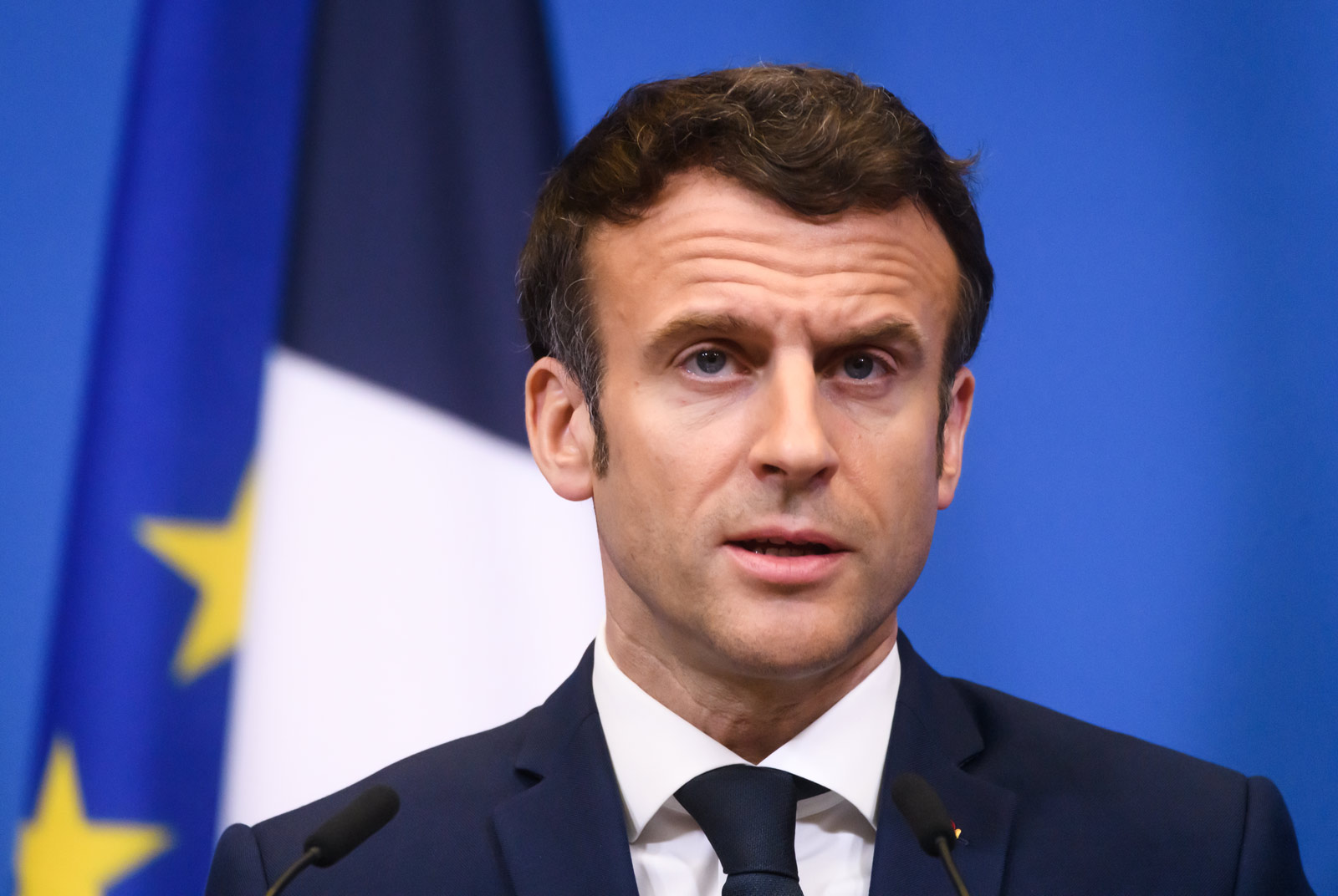Europe’s dream of strategic autonomy

Source:shutterstock
French President Macron’s recent statements about Europe’s ‘strategic autonomy’ from the US-China conflict over Taiwan have sparked a lively debate. While there is broad agreement on the need for economic autonomy, the question of what an autonomous European foreign and security policy should look like remains contentious.
Views
Europe’s dream of strategic autonomy
By Gunter Schubertweb only
Slowly, the dust settles after French President Emmanuel Macron’s remarkable performance during his state visit to China from April 5-7. However, it is a safe bet that his statements on the danger of the European Union (EU) being drawn into a war by the US because of Taiwan, a place of no interest to Europeans, will have long-lasting repercussions for the transatlantic relationship.
Of all the problematic aspects concerning his interview given during a flight from Guangzhou to Beijing, the way Macron linked so-called European ‘strategic autonomy’ to EU-China relations and the sovereignty conflict between China and Taiwan is probably the most worrisome. Macron framed ‘strategic autonomy’ as necessary to avoid the ‘great risk’ of getting ‘caught in crises that are not ours, which prevents (Europe) from building its strategic autonomy’. He invoked the danger that the EU and its member states, facing China’s belief that the West is in decline, would panic and make themselves ‘just America’s followers’. He urged Europeans to ask themselves if it is ‘in our interest to accelerate (a crisis) on Taiwan’, telling his audience matter-of-factly: ‘No.
The worst thing would be to think that we Europeans must become followers on this topic and take our cue from the US agenda and a Chinese overreaction’. Along the same lines, Macron warned the EU not to pretend it has any meaningful capabilities concerning Taiwan: ‘Europeans cannot resolve the crisis in Ukraine; how can we credibly say on Taiwan, watch out, if you do something wrong, we will be there? If you really want to increase tensions, that’s the way to do it’. Moreover, Macron suggested that Europe should reduce its dependence on the ‘extraterritoriality of the US dollar’ to escape Washington’s purposeful ‘weaponization’ of its currency, which would force Europe into cutting ties with third countries or face crippling secondary sanctions.
Now let’s forget for a second about the fierce criticism that the French president has received in Europe and the US for his unexpected statements in China, arguably stemming, at least partly, from a crush on himself by the exceptional attention that he was granted by China’s leader Xi Jinping. European ‘strategic autonomy’ has been on the EU’s agenda for some years now, and a number of policy papers have been produced for the EU Commission by think tanks to substantiate its content.
However, to this day, the crux of the matter remains establishing a consensus between EU member states on what ‘strategic autonomy’ should or could be. The debate is ongoing everywhere in the EU system, and it has been increasingly dynamic since the outbreak of the Russian war against Ukraine in early 2022.
One uncontroversial pillar is economic autonomy. This involves initiatives to strengthen Europe’s technological and industrial base, reduce concentration on specific foreign suppliers in key industries, reshore production chains closer to or into Europe, and promote European values and standards in global trade. “De-risking”, instead of “decoupling”, is the related new buzzword of the EU Commission and its president, Ursula von der Leyen. This requires coordinated industrial policies across all EU member states and certainly needs time. But it is doable.
The tricky part is when it comes to the defense and security realm. President Macron’s demand that Europe should not become a U.S. vassal, stay away from conflicts that do not immediately touch upon European interests (Taiwan), and define its own foreign policy agenda, sounds all fine. But this raises the question of what specific agenda he has in mind for an ‘autonomous’ European foreign and security policy.
Among EU policymakers, the focus is on capacity-building measures to respond effectively to military threats and crises, and to project Europe’s influence and values beyond its borders. However, it is unclear how far the geographic outreach of such an approach should go. Should Europe focus only on conflicts nearby, like in Ukraine? Or does it want to take on a role as a global security provider – adopting a European version of former German Defense Minister Peter Struck’s controversial remark in 2002 that ‘the security of our country is also being defended in the Hindukush,’ by which he legitimated Germany’s contribution of troops to the International Security Assistance Force (ISAF) intervening in Afghanistan? No matter how this debate eventually plays out, ‘strategic autonomy’ in foreign policy terms will involve greater investment in defense capabilities, close cooperation among EU member states on security matters, and the development of a more assertive, value-based foreign policy.
Against this background, this is what the French president makes of European ‘strategic autonomy’: It implies putting visible political distance between Europe and the U.S. (emancipation from a subservient status which is on the brink of sinking into vassalage); staying away from the conflict in the Taiwan Strait (which is of no European concern); and doing what it takes to calm down superpower tensions between the U.S. and China.
Such an approach raises many questions. Why would ‘strategic autonomy’ first and foremost be connected with hedging against the U.S. – a country that Europe, not least France, owes so much for the peace and prosperity Europe has enjoyed since World War II; a country that shoulders the bulk of the West’s efforts to help Ukraine push back against Russians; a country that is, in contemporary speak, ‘like-minded’ in terms of basic values and norms concerning a just political order, the universality of human rights, and a rule-based international system? Why would European ‘strategic autonomy’ have to refer to terminology like vassalage to argue for an independent ground from which to decide how far European support for Washington’s geopolitical agency would go? Why would ‘strategic autonomy’ require abstaining from proclaiming a stance on the ‘status quo’ in the Taiwan Strait and a demand that Beijing should discard military means to bring Taiwan back to its fold?
Isn’t the fact that Taiwan produces 60 percent of the world’s semiconductors (and 90 percent of the most elaborate ones), of which Europe’s economic future depends, enough reason to claim vital interests in the region? And why would European ‘strategic autonomy’ ignore the fact that Taiwan is a ‘like-minded country’ in terms of its commitment to liberal values and a democratic political order?
All in all, Macron’s thinking bespeaks a version of ‘strategic autonomy’ that makes the EU an economic club, perhaps under the leadership of a neo-Gaullist France, that hedges against the U.S., bandwagons with China, and concentrates on stability and development in Europe proper. This is certainly a kind of ‘strategic autonomy’; but it is uncertain if that kind would serve Europe and the world well.
(This piece reflects the author's opinion, and does not represent the opinion of CommonWealth Magazine.)
About the author:

Gunter Schubert is Chair of Greater China Studies and Director of the European Research Center on Contemporary Taiwan (ERCCT) at Tübingen University, Germany.
Have you read?
- How Europe looks at Taiwan – and how Taiwan fails to send out a clear message
- On Macron’s visit to Beijing and the challenge of finding “the European way”
Uploaded by Ian Huang






